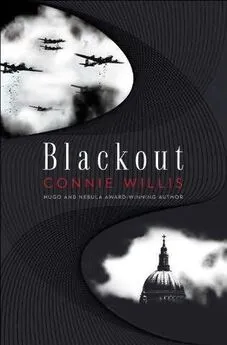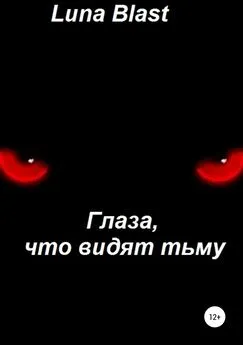Connie Willis - Blackout
- Название:Blackout
- Автор:
- Жанр:
- Издательство:неизвестно
- Год:неизвестен
- ISBN:нет данных
- Рейтинг:
- Избранное:Добавить в избранное
-
Отзывы:
-
Ваша оценка:
Connie Willis - Blackout краткое содержание
In her first novel since 2002, Nebula and Hugo award-winning author Connie Willis returns with a stunning, enormously entertaining novel of time travel, war, and the deeds—great and small—of ordinary people who shape history. In the hands of this acclaimed storyteller, the past and future collide—and the result is at once intriguing, elusive, and frightening.
Oxford in 2060 is a chaotic place. Scores of time-traveling historians are being sent into the past, to destinations including the American Civil War and the attack on the World Trade Center. Michael Davies is prepping to go to Pearl Harbor. Merope Ward is coping with a bunch of bratty 1940 evacuees and trying to talk her thesis adviser, Mr. Dunworthy, into letting her go to VE Day. Polly Churchill’s next assignment will be as a shopgirl in the middle of London’s Blitz. And seventeen-year-old Colin Templer, who has a major crush on Polly, is determined to go to the Crusades so that he can “catch up” to her in age.
But now the time-travel lab is suddenly canceling assignments for no apparent reason and switching around everyone’s schedules. And when Michael, Merope, and Polly finally get to World War II, things just get worse. For there they face air raids, blackouts, unexploded bombs, dive-bombing Stukas, rationing, shrapnel, V-1s, and two of the most incorrigible children in all of history—to say nothing of a growing feeling that not only their assignments but the war and history itself are spiraling out of control.
Blackout - читать онлайн бесплатно полную версию (весь текст целиком)
Интервал:
Закладка:
There’d better be a window, she thought, going up the steps. There was a scattering of dead leaves on them as well, and when she reached the top, she saw why. This wasn’t a cellar. It was the narrow passageway between two buildings, and the locked door she’d tried was a recessed side door into a building. The ledge above the passage would at least partially keep the drop’s shimmer from being seen from above, but what about the street at the end? If the shimmer could be seen from there, the drop would only be able to open when no one was about and would be effectively useless.
She squeezed down the passage past the stacked barrels to see, trying to protect her coat from being torn. And from getting filthy. The barrels’ tops were thick with dust, and drifts of dry leaves crunched underfoot. I hope I’m not in November instead of September, she thought, wedging past the next-to-last barrel. I’d better ascertain my temporal-spatial location. As soon as I’ve checked to see if the shimmer’s visible from the street.
But it wasn’t a street. It was an alley, also paved in brick, and it was lined with the windowless backs of brick buildings-warehouses? Shops? She couldn’t tell, but it didn’t matter. What mattered was that even if the shimmer was visible from here, no one could see it from the buildings facing it, and at night the alley wouldn’t have anyone in it.
She looked cautiously out into the alley. No one was in it. It was nearly as dark as the passage, too dark for 6 A.M. There must have been some slippage, or perhaps it was darker in the narrow alley than out on the street. She looked down the alley. The buildings at the alley’s end were blurred.
Not slippage. Fog. Which meant it might be any time of day. The coal-fire fogs of 1940s London could make midday as dark as night. But she was definitely in World War II because someone had drawn a Union Jack and scrawled, “London kan take it!” in chalk on the brick wall next to the passage. And the chances were excellent that she’d come through exactly when she was supposed to have. There’d been a thick fog in the early morning hours of September tenth.
She walked to the near end of the alley, listened a few moments for approaching footsteps, and then looked cautiously out. There was no one in either direction as far as the fog let her see, and no vehicles on the wider road that she could dimly see off to her left, which meant the all clear hadn’t gone yet. Which meant there’d been scarcely any slippage at all.
But she still didn’t know where she was. She needed to find out-and before the all clear, if possible-but before she left the alley, she needed to make certain she could recognize it and the drop. She walked back down to the passage, committing the buildings to memory. The one nearest the street had large double doors, and the one next to it a ramshackle wooden staircase leading up two dangerous-looking flights to a door with the same black peeling paint as the door in the drop. Next to it was the passage, though if not for the chalked “London kan take it” on the wall, she’d have missed it. The barrels hid not only the recess but the passage. An air-raid warden could look straight at it and not realize it was there.
If the wardens even checked the alley. It was as cobwebbed and leaf-strewn as the passage. Which was good.
She walked on down the alley, looking for other identifying features, but the buildings on both sides were of featureless brick except for the one second from the end, which was a black-and-white, half-timbered Tudor. Good: Tudor, “London kan take it,” rickety staircase, brown double doors.
Which she wouldn’t need, she realized as soon as she stepped out of the alley. A large poster was pasted on the wall next to the alley’s entrance-a cartoon of Hitler, with his trademark mustache and hank of hair over one eye, peeking round the corner of a building above the words “Be Vigilant. Report Anyone Behaving Suspiciously.”
It was good the all clear hadn’t gone. There’d be no one out on the streets to see her behaving suspiciously as she attempted to find out where she was. Which might be a problem. The contemps had taken down or painted over all of the street names at the beginning of the war to hinder the Germans in case of invasion. She’d have to hope she could find a landmark that would tell her where she was-a church spire or an Underground station or, if this was Kensington, the gates of Kensington Gardens. Not the railings-those had been taken down and donated to the scrap drive-but, depending on where she was, the Albert Memorial or the Peter Pan statue.
She needed to hurry. The fog was closing in, obscuring all but the nearest buildings, and shutting out what little light there was. An authentic London pea-souper, she thought, walking down to the wider road in the hopes of seeing a bit farther. But the fog was even thicker here, and growing gloomier by the minute. She could scarcely see down to where the road curved off to the right. And she’d been wrong about the all clear having gone, because two women emerged out of the fog like ghosts and crossed the road ahead of her, obviously on their way home from a shelter; one of them was carrying a pillow. They walked quickly down the road and were swallowed by the darkness.
Polly started down the road past the buildings that faced the alley where the drop was: a bakery, a knitting shop, and on the corner, a bay-windowed chemist’s. They all looked shabby and in need of repair. She hoped that was due to war shortages and not because slippage had sent her through to the East End.
I need to make certain I’m not in Whitechapel or Stepney, she thought. That was where the raids on the tenth had been, and if there’d been locational slippage, and she was in the East End, she needed to go straight back to the alley and Oxford, Mr. Dunworthy or no Mr. Dunworthy.
She peered in the shops’ windows, looking for a notice that would give her a clue to her location. There weren’t any, but the presence of windows confirmed she was when she was supposed to be. None of them were broken, and only one shopkeeper had pasted crisscrossing strips of paper onto the glass to reinforce it. The Blitz couldn’t have been going on more than a few days.
A ghostly black taxi went by, and a man in a bowler hurried across the road ahead of her, walking even more rapidly than the women. Late for work, Polly thought, which meant it was even later than she’d thought. He had a newspaper under his arm. There must be an open newsagent’s nearby. She could buy the Times and confirm this was the tenth, at the least. And ask the newsagent what road this was. She would need a newspaper, at any rate, to look for a flat.
But there was no newsagent she could see on this side of the road. She stepped to the edge of the pavement and peered into the gloom. If a bus came by, it would have a destination board, though the fog was making it so dark she wasn’t certain she’d be able to read it. She might be able to hail it, though, and tell the conductor she’d got lost in the fog and ask where this was.
But no buses-or taxis, or automobiles-came by. She waited several minutes in the thickening darkness, listening for engine sounds, and then gave up and crossed the street. And wasn’t even to the curb before a bus roared by.
Idiot, she thought. If Mr. Dunworthy had seen that, he’d have yanked her out of the Blitz so quickly it would have made her head spin. And in her attempt to leap out of its way, she’d missed seeing its destination board.
There was no newsagent’s on this side of the road either-only a butcher shop and next to it a greengrocer’s. T. Tubbins, Greengrocer, the lettering on the appropriately green awning read, and baskets full of cabbages stood on both sides of the door. It wasn’t open yet, but on the right-hand window was an official notice of some sort.
Polly went closer to squint at it, hoping it was air-raid instructions that would tell the address of the nearest shelter, or at the least have “Borough of Marylebone” printed at the bottom, but it was merely a list of rationing rules.
Two shops farther on was a tobacconist’s, and it was not only open, but on the counter lay an array of newspapers. Behind it, a man with an appropriately tobacco-stained mustache said, “May I help you, miss?”
“Yes,” she said, stepping into the doorway. “I-” and an air-raid siren began to wind up into its distinctive wail. Polly turned and looked back out the door, bewildered.
“Earlier every night,” the man said bitterly.
“Earlier?” she repeated blankly.
He nodded. “Last night it was half past seven. And now tonight the alert…”
The alert. That was the up-and-down wail of the air-raid alert, not the all clear. And at the realization, everything she had seen clicked suddenly into place. It wasn’t morning, it was evening, and the women she’d seen hadn’t been coming home from a shelter, they’d been going to one.
“Better go along home,” the shopkeeper said, taking hold of the door.
“Oh, but,” she said, fumbling in her shoulder bag for her coin purse, “I need a newspaper,” but he’d already shut the door.
“Wait!” she called through the glass. “Where-?”
He shook his head, pulled the shade down, and locked the door. Another siren, nearer, started up. Colin had said she’d have twenty to thirty minutes before the raid began, but she could already hear the drone of planes in the distance. She needed to find a shelter. She had no business being out on the streets during a raid, especially if this was the East End. Or even if it wasn’t. Colin was right-there’d been lots of stray bombs. And every one of these shops had plate glass windows.
There’s got to be a shelter somewhere near here, she thought. The women were going to it. She ran back up the road, looking for a notice or the red-barred symbol of an Underground station. But in the few moments she’d stood in the tobacconist’s doorway, night and fog had descended like a blackout curtain. She couldn’t see anything. And the planes were growing steadily nearer. They’d be overhead any moment.
Which meant this was the East End, and she needed to get back to the drop and out of here as soon as possible. But there was no way she could find her way back in this. She couldn’t even see the pavement in front of her or tell if she was about to pitch off the curb.
She took a cautious, exploring step forward, and crashed into someone. “Oh, I’m terribly sorry,” she said. “I didn’t see you-” And she still couldn’t. The person was only a solid mass of darkness against the more amorphous blackness of the road. She didn’t even know it was a man till he spoke.
“Wot are you doing out in a raid, miss?” he growled. “Why aren’t you in a shelter?”
“I was looking for it,” she said, squinting at him, trying to make out his features. It was unsettling, conversing with someone she couldn’t see. “Which way is it?”
“Here,” he said, and apparently he could see her because he grabbed her by the arm and hustled her round the corner and down a side street.
And I hope this isn’t one of the muggers Mr. Dunworthy was talking about, she thought, clutching her shoulder bag as he dragged her down the narrow side street. Or was it an alley, which he was taking her into to rob her? Or worse. If I get murdered my first night out, Mr. Dunworthy will kill me.
Her abductor hurried her through the dark for what seemed like miles and then stopped abruptly. “Down there,” he ordered and gave her a push forward. As he did, there was a thud and an explosion, and the sky to the south lit momentarily, outlining the buildings around them in a garish yellow-white light and illuminating a flight of stone steps directly in front of her, leading down into darkness.
Читать дальшеИнтервал:
Закладка:

![Jane_BlackCat - Понять не поздно... [СИ]](/books/1148838/jane-blackcat-ponyat-ne-pozdno-si.webp)
![Jane_BlackCat - За краем Вечности [СИ]](/books/1148839/jane-blackcat-za-kraem-vechnosti-si.webp)

